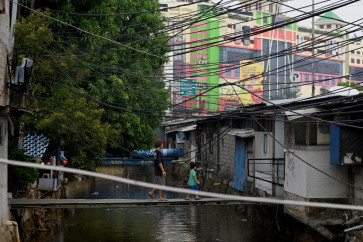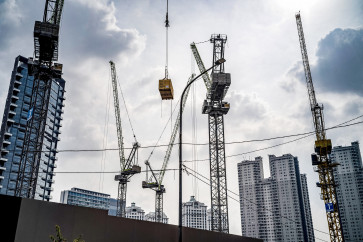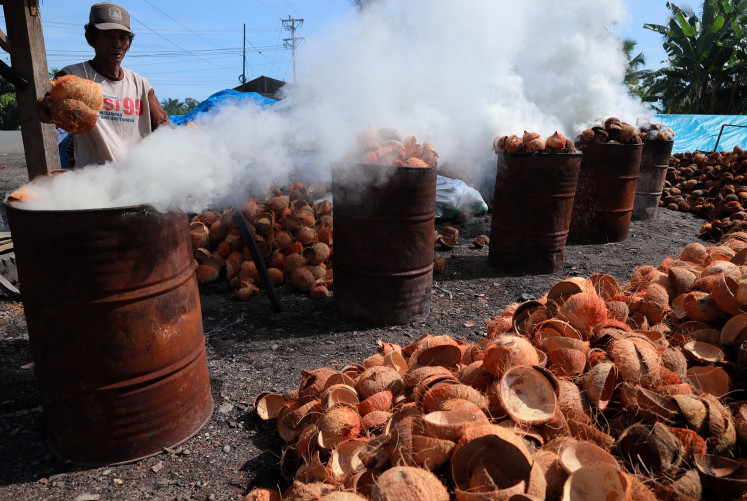People are deficient in the sense of 'We'
Indonesian society has been tainted by the violence of its own people
Change text size
Gift Premium Articles
to Anyone

Indonesian society has been tainted by the violence of its own people. After Arema Malang's supporters ran amok at the Brawijaya Stadium in Kediri in January, a local soccer supporter was attacked by overwhelming numbers of opposition supporters on Feb. 6, prior to a soccer cup semifinal between Persipura Jayapura and PSMS Medan at Jakarta's Gelora Bung Karno main stadium.
The tragedy was followed by more violence on Feb. 9, 2008, when a deadly stampede during a rock concert in Bandung caused the death of ten spectators.
This continuing violence shows a lack of camaraderie, or a sense of the word "we", among Indonesians.
From humanity's perspective -- the incorporation of which is essential to our culture -- fellowship should be attributed to carefulness, thoughtfulness, and to sensitivity for the life of other people, or empathy. That is the essence and the most fundamental meaning of "we".
Indeed the growth and development of "we" could be facilitated among people who share these attributes, but should not result in a fanaticism that works against the essence of "we".
The growth of such constrictive thinking, painfully evident in our society, can be taken as a testament to the absurdity in human nature that works to oppose fellowship.
When people consider the source of fellowship, behavior will always be judged by the degree of appreciation for other people's lives.
Positive behavior will always be aimed at protection, defense, and the safeguarding of the lives of other people, especially those in danger. A person with a healthy and true sense of "we" will always be driven by his conscience to save others from harm.
However, people in this country demonstrate a considerable tendency to behave in careless, unthoughtful, and insensitive manners. This situation may be further illustrated by a horrific experience of a friend, a senior psychiatrist, that occurred while he was riding at night in a bus, driven in a lackadaisical zigzagging manner, by a young man.
While the majority of the passengers were asleep, the driver chatted loudly with his assistant about many other bus and truck drivers jailed for deadly collisions with cars and pedestrians, some of which resulted in fatalities.
The erratic driver shamelessly spoke and gestured while continuing his hypocritical discussion.
In order to explain the source of that lacking sense of "we", we can turn to psychiatrist Daniel J. Siegel and educator Mary Hartzell, who explain the two ways our brain processes information; either via the "high road" or the "low road".
The two experts describe the high-road method as involving higher, more rational and more reflective thought processes. High-road processing allows for mindfulness, flexibility in responses, and an integrated sense of awareness. This is processed by the prefrontal cortex of the brain.
On the other hand, low-road processing requires the temporary termination of higher processes and leaves the individual in a state of intense emotion, experiencing impulsive reactions, rigid and repetitive responses, and a lack of self-reflection and consideration of others' points of view. "Involvement of the prefrontal cortex of the brain is shut off when one is on the low road," they said in their work on the project.
The growth and development of a healthy and true sense of "we" is problematic among people with a tendency toward the low road. People need to be conditioned in order to implement the high road more frequently than the low.
Successful conditioning will result in the positive attributes associated with the high road and the cancellation of low road negatives.
But how can people be thus conditioned? The core of the conditioning lies in the consistent and reliable implementation of our day-to-day rules and laws.
The deficiency in the sense of 'we" and the resulting lack of empathy for our neighbors is really caused by our unwillingness to adhere to this country's rules and laws.
The writer is a psychotherapy consultant psychiatrist and a lecturer of psychotherapy and counseling at the State University of Malang. He can be reached at limass@indo.net.id









